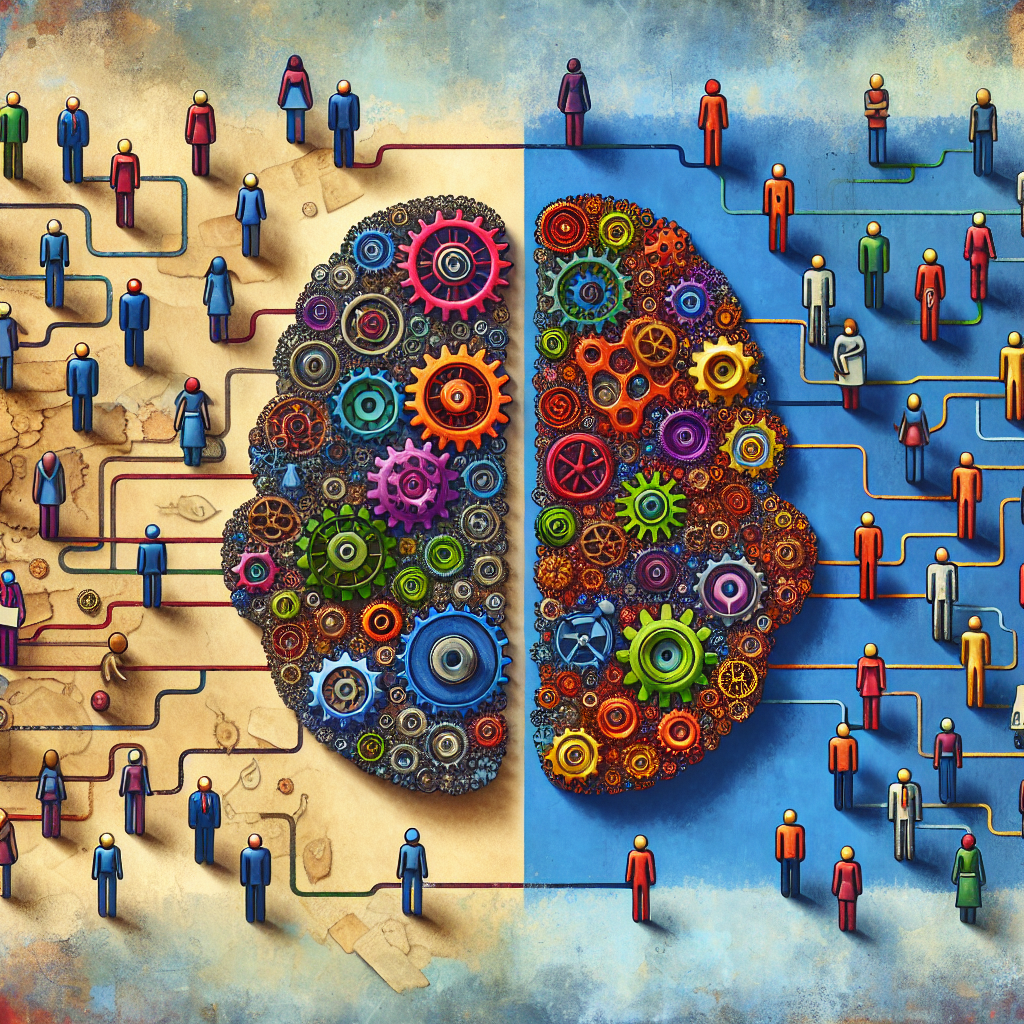The democratization of artificial intelligence (AI) is a growing trend that is reshaping industries, transforming businesses, and impacting societies around the world. As AI technologies become more accessible and affordable, organizations of all sizes are harnessing the power of AI to drive innovation, improve efficiency, and gain a competitive edge. In this article, we will explore the democratization of AI, examine lessons from history, and consider the implications for the future.
The democratization of AI is the process of making AI technologies more accessible to a wider range of users, including individuals, businesses, and organizations. Historically, AI technologies were developed and used by a small group of experts with specialized knowledge and resources. However, advancements in AI research, computing power, and data availability have lowered the barriers to entry, enabling a broader range of users to leverage AI technologies for various applications.
One of the key drivers of the democratization of AI is the development of user-friendly AI tools and platforms that enable non-experts to build, deploy, and manage AI applications. These tools often include pre-built models, drag-and-drop interfaces, and automated workflows that simplify the AI development process and require minimal coding skills. As a result, individuals and organizations without a background in AI can now create and deploy AI solutions to solve complex problems and drive business growth.
Another factor contributing to the democratization of AI is the availability of large datasets and computing resources that are essential for training AI models. Cloud computing services, such as Amazon Web Services (AWS) and Microsoft Azure, provide on-demand access to powerful computing resources that enable users to train AI models at scale. Additionally, open-source AI frameworks, such as TensorFlow and PyTorch, allow developers to leverage pre-existing libraries and tools to accelerate the development of AI applications.
The democratization of AI has the potential to bring about significant benefits across various industries. For example, in healthcare, AI technologies can help diagnose diseases, personalize treatment plans, and improve patient outcomes. In finance, AI can be used to detect fraud, automate trading strategies, and enhance risk management. In manufacturing, AI-powered robots can streamline production processes, optimize supply chains, and improve quality control.
However, the democratization of AI also raises important ethical and societal considerations. As AI technologies become more ubiquitous, there is a growing concern about data privacy, security, and bias in AI algorithms. For example, AI systems may inadvertently perpetuate social biases or discriminate against certain groups if not properly designed and monitored. Additionally, the automation of jobs by AI technologies may lead to unemployment and economic inequality if not accompanied by measures to retrain and reskill workers.
To address these challenges, it is crucial for policymakers, industry leaders, and researchers to collaborate and develop ethical guidelines, regulations, and best practices for the responsible use of AI technologies. For example, organizations should prioritize transparency, fairness, and accountability in AI systems, and actively involve diverse stakeholders in the design and deployment of AI applications. Furthermore, investments in education and training programs can help empower individuals with the skills and knowledge needed to navigate the evolving landscape of AI technologies.
In conclusion, the democratization of AI is a transformative trend that is reshaping industries, empowering individuals, and raising important ethical considerations. By learning from history and embracing best practices, we can harness the power of AI technologies to drive innovation, improve efficiency, and create a more equitable society. As AI continues to evolve, it is essential for all stakeholders to work together to ensure that AI technologies are developed and deployed in a responsible and ethical manner.
FAQs:
Q: What are some examples of AI applications that have been democratized?
A: Some examples of democratized AI applications include chatbots, recommendation systems, image recognition tools, and predictive analytics platforms. These tools are widely used by businesses and individuals to automate tasks, personalize user experiences, and make data-driven decisions.
Q: How can I get started with AI if I don’t have a background in programming?
A: There are many user-friendly AI tools and platforms available that do not require advanced programming skills. For example, platforms like Google Cloud AI Platform and Microsoft Azure Machine Learning Studio offer drag-and-drop interfaces and pre-built models that make it easy to get started with AI development.
Q: What are some ethical considerations to keep in mind when developing AI applications?
A: When developing AI applications, it is important to consider issues related to data privacy, security, bias, and fairness. Organizations should prioritize transparency, accountability, and inclusivity in the design and deployment of AI systems, and actively engage with stakeholders to address ethical concerns.
Q: How can I stay informed about the latest developments in AI?
A: To stay informed about the latest developments in AI, you can follow industry news websites, attend conferences and workshops, and join online communities and forums dedicated to AI technologies. Additionally, enrolling in online courses and training programs can help you stay up-to-date on emerging trends and best practices in AI.

